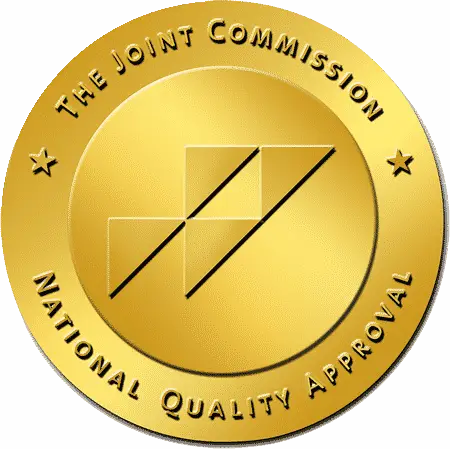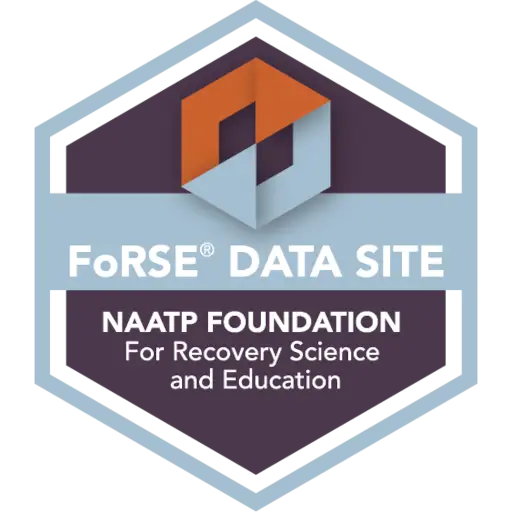Drugs are usually classified into three categories: stimulants, depressants, and hallucinogens. It is critical to be aware of each type of drug’s various effects on the body and mind, as ingesting the wrong one can have serious repercussions.
Around seven to nine thousand Americans die yearly because of medication errors. Whether the drug use is by prescription or illicit, one should be aware of the drug’s probable effects.
Cocaine is a common recreational drug often taken without much thought or research. Knowing whether it is a stimulant or depressant will help you make a more informed decision about its use.
This blog post will discuss whether cocaine is a stimulant or depressant, the effects of cocaine abuse, and how to get help for cocaine addiction.

What Is Cocaine?
Cocaine is a powerful and highly addictive drug produced from the leaves of the coca plant native to South America. While cocaine has some valid medical uses, it is illegal in the United States.
Unfortunately, cocaine is commonly sold as a street drug, more recognized in the streets as C, coke, blow, snow, nose candy, white lady, white dust, or stardust. It usually comes as a fine white powder that can be smoked, snorted, rubbed into the gums, or injected into the bloodstream.
Street dealers often mix cocaine crystal powder with flour, cornstarch, baking powder, or talcum powder to increase the product and maximize their profit.
Cocaine also comes in a rock crystal form known as “crack cocaine.” In a process known as “freebasing,” it is heated to produce smoke which is inhaled into the lungs. (Crack cocaine gets its name from the crackling sound it makes when heated.) Some users also crush the rock into smaller pieces and add it to marijuana or tobacco to smoke.
Some street dealers combine cocaine with other drugs, such as amphetamines or heroin. This combination is known as “speedball” and can be even more dangerous than cocaine alone. Some even mix cocaine with synthetic opioids such as fentanyl, which makes it more addictive and deadly.
The United States Drug Enforcement Administration (DEA) classifies cocaine as a Schedule II drug, meaning it has a high potential for abuse and addiction and often causes severe psychological and physical dependence.
Using cocaine results in an immediate and intense high, which can cause its users to become addicted after just one use. The high is usually experienced as a rush of energy and euphoria, followed by an intense craving for more.
Cocaine users often become dissatisfied with the drug’s short-lasting effects and take more to extend its duration. Over time, their body develops a tolerance to the effects of cocaine use, causing them to increase the dosage or frequency to achieve the same effects. This puts them at an increased risk of a cocaine overdose.

What Are the Differences Between Stimulant Drugs and Depressant Drugs?
Before exploring if cocaine is a stimulant or depressant, let’s first discuss the differences between these two drug types.
Stimulant Drugs
Stimulants are drugs that produce high energy and alertness.
Also known as uppers, stimulants make users feel more awake and active but can sometimes produce feelings of anxiety and aggression.
Common stimulants include caffeine, methamphetamine, nicotine, and prescription stimulants. The stimulant effects of these drugs can improve cognitive performance and focus.
Depressant Drugs
Depressants, also known as downers, have the opposite effect of stimulants. Depressants reduce brain activity and slow down the central nervous system. They decrease mental and physical activity and induce calmness, relaxation, and sleepiness.
Common depressants include alcohol, benzodiazepines, barbiturates, cannabis, and heroin. Depressant abuse can lead to slowed breathing, impaired judgment, and respiratory arrest.
Cocaine – Stimulant or Depressant?
Since the effects of cocaine use produce intense feelings of euphoria, cocaine is classified as a stimulant drug. Other effects from stimulants include increased alertness, wakefulness, and concentration.
Cocaine use interferes with how nerve cells communicate with each other in the central nervous system. Cocaine blocks the reuptake of neurotransmitters like dopamine and affects the body’s natural reward system, resulting in intense pleasure and energy.

What Are the Immediate Effects of Cocaine Use?
While cocaine can boost energy and concentration, it has several adverse effects.
Some of the immediate physical effects of taking cocaine include:
- Dilated pupils
- Increased heart rate and blood pressure
- Raised body temperature
- Nausea
- Tremors
- Decreased appetite
- Sleep problems
- Heart attack
Cocaine use can also lead to psychological issues, such as:
- Euphoria
- Increased energy and alertness
- Agitation and irritability
- Mood swings
- Severe paranoia
- Violent behavior
- Panic attacks
Cocaine is particularly dangerous when injected, leading to scarring and collapsed veins. It also puts the user at a higher risk of contracting HIV, hepatitis C, and other bloodborne diseases and infections. Additionally, snorting cocaine can damage the nasal cavities and throat.
What Are the Long-term Side Effects of Cocaine Use?
Prolonged use of cocaine can result in long-term and potentially fatal side effects. These include:
- Chronic insomnia
- Chronic nosebleeds
- Mouth ulcers
- A perforated septum
- Respiratory failure
- Mouth, throat, and lung cancer
- Severe bowel decay
- Soft tissue infections
- Constricted blood vessels
- Depression
- Anxiety
- Weight loss
- Malnutrition
- Increased risk of stroke and seizure
Cocaine abuse can also cause severe mental health issues like psychosis and paranoia. Excessive and long-term cocaine use can also lead to cocaine addiction, which can have devastating physical, psychological, and social consequences.
What Are the Withdrawal Symptoms of Cocaine Addiction?
If someone has become addicted to cocaine, they will experience withdrawal symptoms when they stop taking it. These include:
- Intense cravings
- Depression
- Fatigue
- Intense mood swings
- Severe anxiety
- Lack of focus
- Insomnia or hypersomnia
- Tremors and restlessness
- Severe headaches and stomach pains
- Suicidal thoughts and actions
It’s vital to seek professional medical advice if you or someone you know has a cocaine addiction. Professional help can manage withdrawal symptoms and provide access to resources to help treat cocaine addiction.
What Are the Treatment Options for Drug Abuse?
Drug addiction is a life-threatening problem. Treatment options vary depending on the severity of the addiction and may include the following.
Pharmacological Interventions
This type of cocaine addiction treatment involves medication to help reduce cravings, manage withdrawal symptoms, and treat any mental health issues associated with the addiction.
Several types of medication-assisted treatment (MAT) use disulfiram, modafinil, bupropion, and topiramate to manage cocaine addiction. Additionally, further research is being conducted into finding a medication or vaccine that could block the effects of cocaine.
Behavioral Treatment
Substance use disorders are complex; behavioral treatment is necessary to help those affected. This treatment includes cognitive-behavioral therapy (CBT), motivational interviewing, and other evidence-based approaches like contingency management.
Individual and group therapy are also beneficial for those with cocaine addiction. Additionally, support groups like Cocaine Anonymous offer valuable resources for recovery and provide a safe space for people to talk about their experiences with substance abuse and addiction.
La Hacienda Treatment Center
Cocaine use and addiction is a dangerous disorder, but with the help of skilled medical and clinical professionals people can quit using the drug and live without it.
]At La Hacienda Treatment Center, we offer treatment plans tailored to meet the patient’s unique needs.
If you or someone you love is struggling with cocaine addiction, La Hacienda can provide guidance, support, and treatment services leading to a sustainable recovery process and a drug-free life.
La Hacienda’s knowledgeable admission staff are ready to answer your questions now. Give them a call.
Sources:
https://adf.org.au/drug-facts/cocaine/
https://nida.nih.gov/publications/drugfacts/cocaine
https://adis.health.qld.gov.au/information/drug-types




